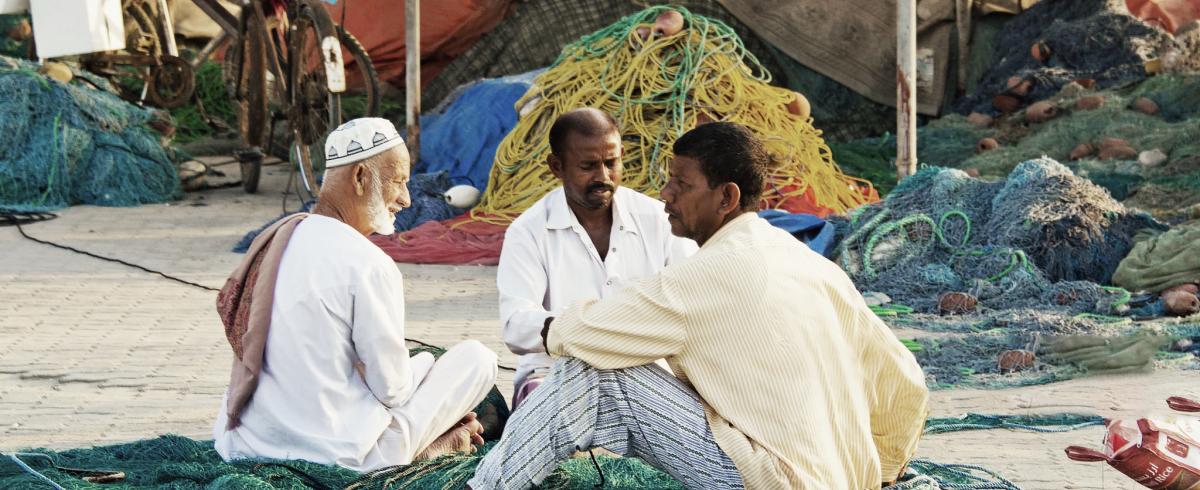
Categories to Explore
Welcome to the Resource Library. Here you will find a range of resources that you can use to support your small-scale fishery and community. Use the buttons above to browse resources by category or use the filters on the right to sort resources.
Shark and Ray Recovery Fact Sheet 2 - Cabo Pulmo, Mexico
Recovery of tiger, bull, and reef sharks in Cabo Pulmo, Mexico: A bold decision from the local community – to give up their fishing rights and voluntarily extend the protection around their local reef – has played a critical role in the regeneration of one of Mexico’s most important shark hotspots.
Shark and Ray Recovery Fact Sheet 1 - Smalltooth Sawfish in Florida, USA
Smalltooth sawfish recovery in Florida, USA: Direct and indirect protection measures, public education and a long-term science-based recovery plan are bending the curve for a rare and iconic species in US waters.
Identifying Pathways for Climate-Resilient Multispecies Fisheries
These case studies – from Mexico, Cuba, and Chile – differ in data richness, governance structure, and management resources. The management systems are also in various stages of evolution from unmanaged to complete management of a single species but transitioning to multispecies management.
Marine-Related Learning Networks: Shifting the Paradigm Toward Collaborative Ocean Governance
This study investigates the emergence, key attributes, and outcomes of marine-related networks using semi-structured interview data from 40 key informants representing 16 different networks that operate around the world at local, national, regional, and global scales. Our findings indicate that marine-related learning networks form in response to knowledge and action gaps and the specific needs of network members, and they function to inform policy and improve ocean management.
Blue Infrastructure Supporting SDG 14 in Coastal Communities in Indonesia
In this white paper, “Blue Infrastructure Supporting SDG 14 in Coastal Communities in Indonesia,” we outline the pros, cons, and impact of blue infrastructure solutions, alternatives, and adaptations to gray infrastructure that will best suit the needs of coastal communities in Indonesia. We provide examples of what is working around the world, and hope this serves as a resource for other partners and decision-makers who want to achieve U.N. Sustainable Development Goal 14: Life Below Water.
A good practice guide for ethical and inclusive communications involving small-scale fisheries
This guide provides practical and simple guidance on how to communicate about small-scale fisheries in an inclusive, responsible and ethical way that respects the 108 million rights holders who depend on small-scale fisheries for food and income. By promoting positive narratives about small-scale fisheries and following good communication practices, we can all contribute to improving food security and nutrition, reducing poverty, and supporting a thriving subsector.
The Great Blue Wall: Good practices for marine and coastal conservation in the Western Indian Ocean
The aim of this PANORAMA Solutions in focus publication is to highlight existing good practices in the WIO region that contribute to the three main objectives of the GBW. Scaling such solutions across the region and integrating these into future planning and investments, as well as supporting knowledge exchange amongst key actors to build on “what works”, will all be key to achieving the ambitious goal of the GBW.
This publication focuses on 46 PANORAMA Solutions from the WIO region that provide a good representativity of the range of actions delivering tangible outcomes and that are promising for further development. We first classified them according to the GBW’s three components. We then identified their contributions to ecosystem health, human well-being or both, based on the description provided in the solutions’ impact section.
The Status, Achievements and Impacts of Collaborative Fisheries Management Approaches in the SWIO Region
The main aim of this report is to establish the status and achievement of co-management, contribute to the development of successful fisheries co-management in the SWIO region and share lessons learned from previous and existing interventions. The information generated in this report will be of invaluable contribution to the own going fisheries co-management interventions and future work on this topic. There are various fisheries co-management initiatives in the SWIO region supported by both government and non-governmental entities.
Policy Brief on Regional Minimum Terms and Conditions for Granting Fishing Access in the South West Indian Ocean (SWIO)
The Regional Minimum Terms and Conditions Guidelines for granting fisheries access in the SWIO region were developed and adopted by the South West Indian Ocean Fisheries Commission (SWIOFC) member states. This policy brief prepared by SWIOTUNA serves to raise awareness among her constituents and the general public about these regional MTC guidelines and urges SWIO member states to accelerate its implementation at national and regional level.
Fish Handling and Hygiene Training Manual
The SWIOTUNA Training Manual for Fish Quality, Safety & Handling provides easy-to- use information for guiding Small Scale fishers towards the improvement of quality and safety of fish and fishery products, through promoting good hygiene practices and good manufacturing practices.
